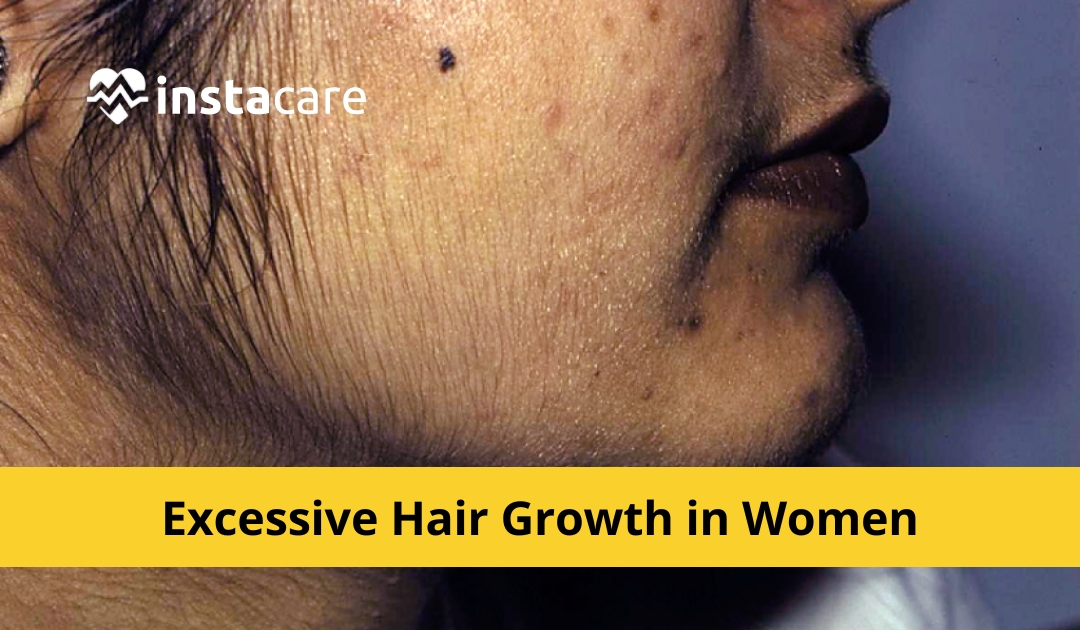If you're a woman struggling with the condition of hirsutism - excessive body growth of hair in the wrong places that can be embarrassing and cause low self-esteem – you know how difficult it can be to find helpful information about its causes and treatment options. Fortunately, this blog post aims to give you all the insights needed on this topic so you can better understand and manage your situation. From common descriptions of hirsutism, possible causes like certain health conditions or medication side effects, as well as available treatments for male pattern hair growth such as laser therapy or other medical procedures, we’ll cover everything here so keep reading!
What is hirsutism?
Hirsutism is a condition that causes excessive hairiness in areas of the body where it normally wouldn't appear, such as around the chest, upper lip, and back. It most commonly occurs in women due to an excess of testosterone, but can also be caused by polycystic ovary syndrome or cushing’s syndrome.
The increased growth of hair, which is usually darker and thicker than normal body hair, can be emotionally distressing for many women who are effected by hirsutism. Treatments include hormone therapy, laser hair removal and medications to reduce the amount of male hormones in the body. Ultimately, discovering the underlying cause of hirsutism is essential for finding the best treatment plan.
What are the symptoms of hirsutism?
Hirsutism is a condition that causes excessive, abnormal growth of dark and coarse hair on women’s faces and bodies. Symptoms may include the development of coarse hairs on the face, back, chest, abdomen and arms. Women with hirsutism are likely to have upward-growing facial hair that follows the line of their cheekbones, as well as sideburns or a mustache.
Other signs include hairiness below the navel or along the crease between the thigh and torso. Some women also experience acne or extra body weight as symptoms of hirsutism. While such physical changes can be distressing and unwelcome to some, there are several treatments available to reduce unwanted hair growth.
View More: How To Stop A Receding Hairline Causes And Treatment
What are the causes of hirsutism in women?
Hirsutism is a fairly common condition in women that leads to excess unwanted hair growth on the face and body. While occasional hirsutism is usually normal, excessive and recurring hirsutism may be caused by certain medical conditions such as polycystic ovary syndrome (pcos), hormonal imbalances, or as a side effect of steroid medications.
Additionally, women may also experience hirsutism due to genetics—which means if your mother or father had it, there’s a higher likelihood that you will have it too. Whether you have a mild or severe case of hirsutism, consulting with an endocrinologist can help you assess the underlying causes, diagnose it correctly and find out what type of treatment may best suit your needs.
How is it diagnosed?
Hirsutism is typically diagnosed through a physical examination of the affected areas. During the exam, a doctor will look for signs of increased androgen production such as male-pattern hair growth on the chin and chest. Blood tests are often used to measure hormone levels, including testosterone and dheas (dehydroepiandrosterone sulfate), which may indicate abnormal excess of hormones in the body.
Other possible tests include ultrasound examinations to detect ovarian cysts or genetic testing to identify certain gene variants that predispose women to hirsutism. Ultimately, diagnosing hirsutism is based on assessing past medical history, physical exams, lab results, and possibly additional imaging tests.
What are the available treatments for hirsutism, and which one is right for you?
Hirsutism, a condition that causes excessive hair growth on the face and body, can be caused by an array of medical and hormonal factors. Fortunately, there are several treatments available for this condition. Treatment options typically depend on the underlying cause of hirsutism, which should be identified through further examination by a healthcare provider.
Some of the most common treatments include prescription medications like birth control pills to reduce male hormones in women, or spironolactone to suppress the production of certain male hormones in the ovaries and adrenal glands.
Other therapies available are laser or electrolysis hair removal, waxing or threading, or topical creams like vaniqa. When choosing the right treatment for you, it's important to consider your budget and lifestyle, as well as how much time you're willing to spend caring for your skin. Ultimately, it's essential to consult with a healthcare professional about which treatment may work best for you.
How can you prevent hirsutism from developing in the first place?
Hirsutism is a condition that can cause increased hair growth in places where it is not usually seen on women and can often be a source of distress. Fortunately, there are some simple measures you can take to prevent hirsutism from developing in the first place. These include avoiding certain diets that lead to higher levels of testosterone production, such as those high in dairy and refined carbohydrates.
Additionally, regular exercise and reducing stress levels have been proven effective in reducing hirsutism-causing hormone levels. Finally, consulting with your doctor may help develop an individualised treatment plan to balance hormones. Taking these steps can help ensure that hormonal fluctuations don't lead to more unwanted hair growth.
View More: 10 Benefits Of A Hair Mask - How To Use A Hair Mask
Conclusion
Although the means to an end may vary, the goal is always to bring hormone levels back into balance. If you are struggling with hirsutism and would like help finding a treatment plan that works for you, please don’t hesitate to reach out to our team of medical professionals. We will work with you to find a solution that restores your confidence and gets rid of unwanted hair growth for good.
Please book an appointment with the Best Doctors For Hair Fall Treatment in Lahore, Karachi, Islamabad, and all major cities of Pakistan through InstaCare, or call our helpline at 03100002273 to find a verified doctor for your disease.
Source: https://instacare.pk/blog/excessive-hair-growth











